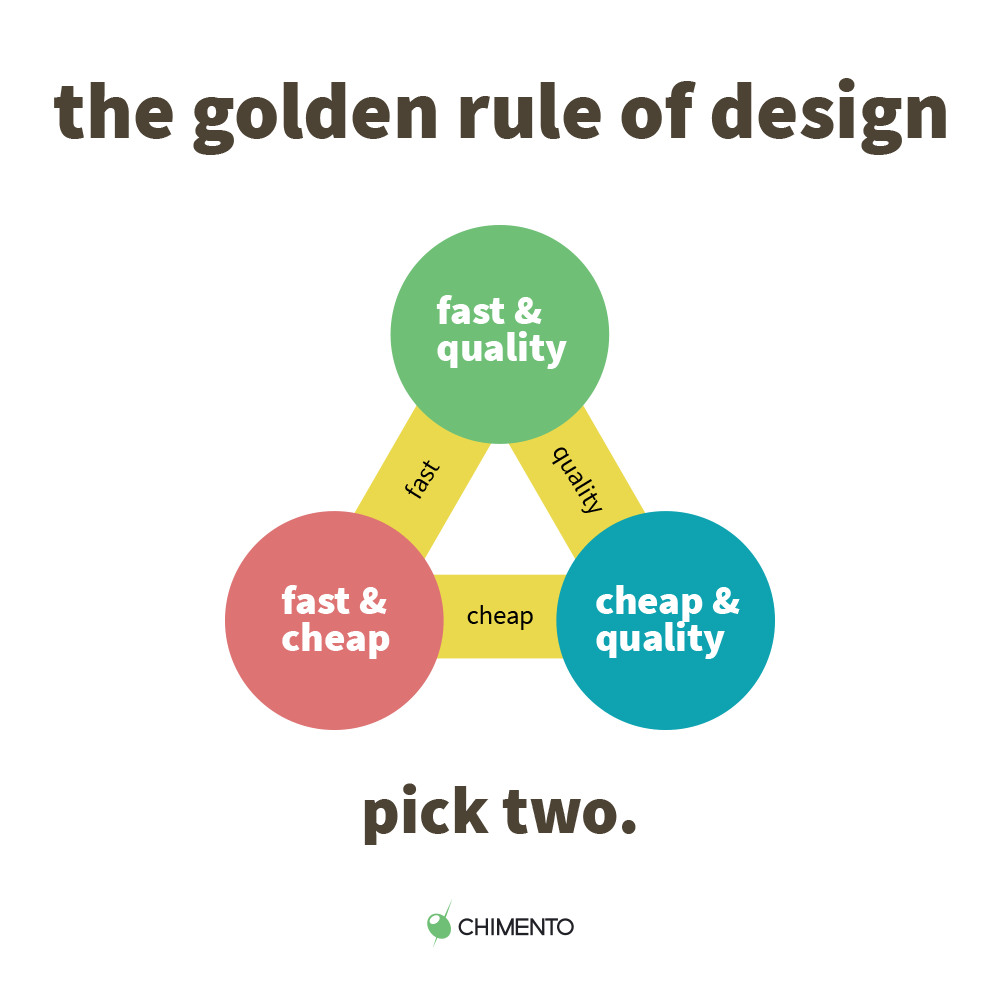
What Every Business Owner Should Know Before Building a Website
A common-enough question from business owners interested in updating their website is “What do I really need?” It’s a relevant query– often, design agencies and website developers will overcharge, over-build, and over-complicate the entire project without thinking ahead or confirming what the client really requires from their site. As a business owner in need of a new or updated website, here are three things you should know before hiring a web developer.
1. The Purpose of Your Website
Every website should have at least one goal for each visitor to accomplish. It could be to fill out a form, or purchase a product, or watch a video. This is known as the Primary Action. Without a Primary Action, your visitors will have no reason to remain on your site or interact with your business.
Imagine walking into a grocery store, but instead of rows of shelves filled with food, you saw a blank wall with pictures of staff and some stacks of paper to read. Is that a store you would want to shop? If you kept looking, you might find a door to the shelves and registers, but they have already lost your business by hiding the main purpose of your visit.
A website should be easy to use and understand, and so it must have a very definitive purpose. Define that purpose for your business first. If you’re having trouble with that definition, speak with a local business development team or a branding and strategy expert.
2. How You Want to Manage Your Website
The age of the Webmaster, the all-knowing, all-powerful being who controls and updates your site with their magical powers, is ending. Services like GoDaddy and BlueHost make managing hosting easy to understand and control. Website platforms like Wix and WordPress allow even the most technology-averse person to change and update their site from their mobile phone.
Of course, there are positive and negative sides to everything. In return for full control of your site, you must learn how to manage the various platforms, feel comfortable enough to update plugins and add-on services, and tackle basics like administration panels, the difference between static pages and blogs, and writing SEO-optimized content.
Now that you know the pros and cons, it’s up to you to decide how you want to manage your site. If you can do everything, more power to you! However, it’s common for business owners to choose to focus on their products and services and leave the site development and management to the experts. This is perfectly fine, but remember: you can still control your own services, even if you’ve hired someone else to manage. Set up your site with separate accounts for developers to use, which you can limit or revoke as necessary. Provide admin access to hosting services through separate users who can be removed when you want.
Whatever you do, don’t let a developer hold your site hostage for hourly work! Hire someone you can trust to treat you and your business right.

3. Your Budget
It’s never the most enjoyable topic to discuss, but sooner or later every business owner will have to determine their budget for site design, development, and management. A baseline rate for monthly hosting, annual domain name renewals, and email services or CRMs is first. Then, depending on the platform you’ll be using, how much you’re willing to spend for a professional website.
As mentioned before, websites like Wix and Squarespace provide drag-and-drop capabilities for users with little to no knowledge of HTML and JavaScript. The sites can be as big or as small as you’d like, with as many or as few features you want, all depending on your available time and effort. However, for features such as removing platform ads from your site, using a custom domain name, and hosting a store on your site, the monthly cost for hosting your site through Wix could jump to $30. Squarespace is even more expensive, up to $46 per month for premium e-commerce features. Alternately, a single WordPress site hosted on Bluehost is only $8 per month, and plugins for e-commerce features, complete theme designs, backups, security, and almost anything else imaginable are either free or purchased once. The need to pay a premium monthly subscription for as long as you have the site disappears.
This also means that you may need to hire a developer to put everything together for you. Some developers have templated sites available, which saves time during setup but may not meet all your business’s requirements. Others may build a completely new site from scratch, a costly and unnecessary investment for most businesses. How good do you want your site to look? How modern, or interactive, or clever, or simple? Finally, how quickly do you need it to be complete? This simple diagram can sum up a good standard in design:

Finally, your site will never really be complete. Because of search engines like Google who require constant updates and content on your site, changing industry standards, and (in the case of most e-commerce sites) new products and sales, your site will require constant maintenance, content and back-end updates, user management, and bug fixes. This should factor into your budget, because like a car, your website needs some regular TLC.
How Chimento Agency Can Help
So how does this relate to what Chimento Agency does for your business? We’re a full-range media agency for businesses who need an answer to their problems. We design, build, manage, and maintain websites ranging from the gigantic down to the minuscule, and we help you understand and learn along the way. We’re upfront about costs and honest about our work. Most importantly, we’re dedicated to being your partner and advocate, so you are always in control of your business.
If you’re interested in working with us, get in touch! We can answer your questions, offer guidance, and provide options. Chimento Agency is here to help you.
Some links contained in this article may be affiliate links, where we earn commission for referred customers. Chimento Agency only provides affiliate links to the companies and services we firmly believe are the absolute best options for our own clients.



